About the Host
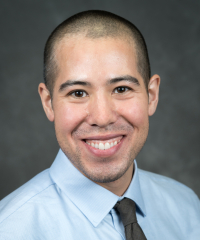
Dr. Nathaniel Chin is the creator and host of Dementia Matters. He is a geriatrician, memory clinic doctor, and medical director for the Wisconsin Alzheimer's Disease Research Center. His father's diagnosis with early onset Alzheimer’s disease inspired him to pursue a career as a geriatrician and scientist focused on dementia prevention, especially in regard to Alzheimer's disease.
Dementia Matters is a podcast about Alzheimer’s disease and other causes of dementia. Creator and host Dr. Nathaniel Chin interviews leading scientists and caregiving experts to bring listeners the latest in Alzheimer's disease news, research and caregiver resources.
Three Ways to Listen
You can listen to episodes through our website or subscribe to Dementia Matters through ApplePodcasts, Spotify, Podbean or wherever you get your podcasts. You can hear Dementia Matters on Fridays at 4 p.m. (CT) and again at 10 p.m. (CT) during the "Science Friday" segment on WMUU Radio, 102.9 FM in Madison, and streaming online.
Contact Us
Email your questions and episode suggestions to dementiamatters@medicine.wisc.edu.
Audio Editors: Eli Gadbury and Alexia Spevacek
Executive Producer: Caoilfhinn Rauwerdink
Producer: Amy Lambright Murphy
Make an Impact
Like what you’re hearing and learning? Make an impact when you make a tax-deductible gift to the Dementia Matters fund of the UW Initiative to End Alzheimer’s.
Recent Episodes
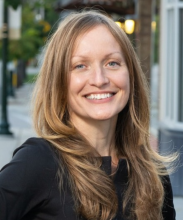
Alzheimer’s disease isn’t always the only health condition a person faces, so how does treating other diseases impact the progression of Alzheimer’s? Researchers at the University of Arizona focused on four common health conditions – type two diabetes, hypertension, inflammation and dyslipidemia – which are known to increase the risk of developing Alzheimer’s disease, and set out to investigate whether those diagnosed with Alzheimer’s who received treatments for these four conditions also saw a delay in cognitive decline. Dr. Barb Bendlin joins the podcast to break down the findings from this research, as well as discuss the impact of personalized prevention strategies and combination therapies.
Guest: Barbara Bendlin, PhD, professor, Division of Geriatrics and Gerontology, University of Wisconsin (UW) School of Medicine and Public Health, deputy director, UW Center for Health Disparities Research (CHDR)


10,000 – that’s the magic number of steps often recommended for a healthy lifestyle. With recent research looking into whether that number is an accurate benchmark for health, could the number of steps taken per day have an impact on brain health and, specifically, cognitive decline? That’s precisely what a new study from Harvard Medical School and Mass General Brigham sought to examine, looking at how physical activity, specifically step count, impacted cognitive decline for those living with Alzheimer’s disease.
Guests: Bri Breidenbach, PhD, scientist, exercise physiologist, Okonkwo Lab, and Sarah Lose, MS, research program manager, exercise physiologist, Okonkwo Lab, UW School of Medicine and Public Health

As 2025 comes to an end, host Dr. Nathaniel Chin discusses the importance of gratitude for brain health and shares what he’s grateful for from this past year.
Complete the Dementia Matters Feedback Survey to let us know what our show is doing well and how we can improve in the New Year! This anonymous survey will be open until January 14th, 2026 and is estimated to take about 5 minutes to complete. Find the survey link on the episode page!

Traumatic brain injuries (TBI) like concussions are not uncommon, especially in children and older adults. These injuries can have both short-term and lasting effects on the brain, but what about their impact on cognitive function? Dr. Deling He of UW–Madison’s Cognitive-Communication in Aging and Neurogenic Disorders Laboratory (CCANDL) lab joins the podcast to discuss her research on the connections between TBI, speech pathology and cognition and what her study findings mean for people with a history of TBI.
Guest: Deling He, PhD, postdoctoral research associate, Cognitive-Communication in Aging and Neurogenic Disorders Laboratory, Department of Communication Sciences and Disorders, UW–Madison


When memory, thinking or communication changes begin, knowing where to turn for support can make all the difference. In this episode, we explore how two key health care specialties can help individuals and families meet those challenges with confidence. Sarah Gunderson, an occupational therapist, and Kari Esser, a speech-language pathologist, draw from their work supporting people experiencing a wide range of neurological conditions to walk us through the foundations of their specialties and their unique roles in mild cognitive impairment (MCI) and dementia care. Sarah and Kari also provide a preview of their upcoming talk, “Partnering with Your Healthcare Team,” as part of the 2025 Healthy Living with MCI education program.
Guests: Sarah Gunderson, OT, occupational therapist, UW Health, and Kari Esser, MS, CCC-SLP, speech-language pathologist, UW Health

What do COVID-19 brain fog and ophthalmology have to do with Alzheimer’s disease? There may be more connections than one might think. Dr. Sean Miller is one of the scientists behind a recent study that used retinal tissue to investigate the links between COVID-19 infections and the build-up of amyloid and other indicators of Alzheimer’s disease in the central nervous system. Dr. Miller joins the podcast to discuss his research and its implications for COVID and dementia diagnosis and treatments in the future.
Guest: Sean Miller, PhD, research scientist, department of ophthalmology and visual science, Yale School of Medicine

Caring for someone living with dementia can be both deeply meaningful and incredibly challenging. Finding effective ways to connect, communicate and provide support often requires shifting how we see and respond to changes in the brain. In honor of National Family Caregivers Month, renowned dementia care specialist Teepa Snow joins the podcast to share her insights on improving life with dementia through empathy and understanding. As the founder of Positive Approach to Care (PAC), Teepa has developed the Snow Approach, a set of practical and compassionate techniques designed to empower care partners. She discusses the philosophy behind her methods, the importance of recognizing retained abilities and strategies that can make daily interactions more positive and meaningful for both care partners and those living with dementia.
Guest: Teepa Snow, MS, OTR/L, FAOTA, dementia care specialist, educator, owner, trainer, Positive Approach LLC, co-founder & chair, Snow Approach Foundation

Grief is a complex topic for people with dementia, their loved ones, caregivers and doctors to navigate. Dr. Erica Srinivasan, an expert on the psychology behind grief, joins the podcast to discuss the different kinds of grief people can experience and share strategies and resources for addressing the grief associated with dementia.
Guest: Erica Srinivasan, PhD, associate professor of psychology, University of Wisconsin–La Crosse (UWL), director, Center for Grief and Death Education, lead instructor, Grief Support Specialist Certificate, UW–Madison Continuing Education
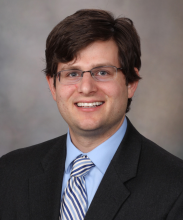
Clinical trials are essential for improving the lives of those diagnosed with Alzheimer’s disease and related dementias. With so many trials out there, it can be difficult for someone who’s interested in participating in research to know where to start. Dr. Jonathan Graff-Radford joins the podcast to discuss the ins and outs of clinical trials and the state of Alzheimer’s treatments today, as well as share some highlights from his presentation at the National Alzheimer’s Coordinating Center’s (NACC) 2025 Spring ADRC Meeting.
Guest: Jonathan Graff-Radford, MD, behavioral neurologist, associate professor, vice chair, Mayo Clinic Department of Neurology, co-investigator, Mayo Clinic Alzheimer’s Disease Research Center
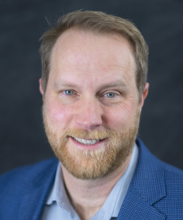
Microplastics are a growing concern in the field of environmental health, but their impact on the brain is only beginning to be understood. Joining the podcast to share the latest research on these tiny particles, which have been found in the brain and other parts of the body, is Dr. Matthew Campen, a leading researcher in the field whose work is helping to uncover how environmental exposures like the accumulation of microplastics could affect neurological health, dementia risk and more.
Guest: Matthew Campen, PhD, MSPH, director, New Mexico Center for Metals in Biology and Medicine, director, University of New Mexico Clinical and Translational Sciences Center KL2 Mentored Career Development Program, deputy director, Training Core director, UNM Metal Exposure and Toxicity Assessment on Tribal Lands in the Southwest (UNM METALS) Superfund Research Program Center, professor, University of New Mexico Health Sciences Center
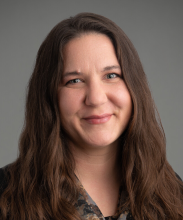
As an individual develops dementia, they may need support in many areas of their lives. One of these areas is decision-making, particularly regarding health care decisions, but how can someone or their loved one determine if they need support with decision-making? To answer these questions, Dr. Victoria Williams joins to discuss capacity and capacity testing. She dives into the different kinds of decision-making abilities that can be assessed, the signs that one may need an assessment and more, as well as shares a preview of her upcoming Healthy Living with Mild Cognitive Impairment (MCI) program, “Cognitive Testing and Brain Imaging Explained.”
Guest: Victoria Williams, PhD, neuropsychologist, UW Health, assistant professor, Department of Medicine, University of Wisconsin School of Medicine and Public Health
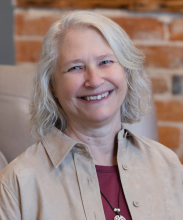
Receiving a diagnosis of mild cognitive impairment (MCI) or dementia can be an emotional and challenging experience. How can meditative practices support those living with MCI? Buddhist chaplain Sharon Lukert wrote her book, Until My Memory Fails Me, with the goal of sharing mindfulness and spiritual practices that have helped her since being diagnosed with MCI in 2021. She joins the podcast to share how her spirituality has impacted her journey to a diagnosis as well as strategies on navigating emotional struggles and building community for those living with MCI.
Guest: Sharon Lukert, author, Buddhist chaplain
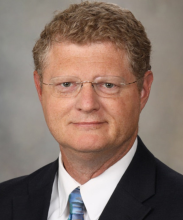
Frontotemporal lobar degeneration (FTLD) is one of the most common causes of dementia in individuals under the age of 60, yet it remains lesser known and often misunderstood. From the early symptoms to the challenges of diagnosis and treatment, FTLD presents unique hurdles for clinicians, researchers and families alike. Joining the podcast to discuss this complex disease is Dr. Brad Boeve, principal investigator of the ALLFTD study, a major national research effort aimed at identifying biomarkers and clinical tools to improve early detection of FTLD and prepare for future treatment trials.
Guest: Brad Boeve, MD, neurologist, Department of Neurology and Center for Sleep Medicine, professor of neurology, Division of Behavioral Neurology, Mayo Clinic, co-director, Mayo Clinic Alzheimer’s Disease Research Center, principal investigator, ARTFL-LEFFTDS Longitudinal Frontotemporal Lobar Degeneration (ALLFTD) research study
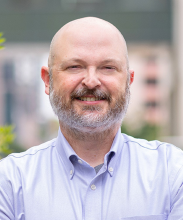
Smartphones and technology are ubiquitous in nearly every aspect of our lives, but is technology helping or hurting us when it comes to memory and cognition? Dr. Jared Benge, neuropsychologist and associate professor from the University of Texas at Austin, joins the podcast to discuss his research into how technology and smartphone use impacts the brain, how digital technology can be used to help individuals with cognitive impairment and what his findings mean for the future.
Guest: Jared Benge, PhD, ABPP, clinical neuropsychologist, Comprehensive Memory Center, UT Health Austin, associate professor, Dell Medical School, University of Texas at Austin

What is the current impact of Alzheimer’s disease and related dementias on the United States? To best understand its significance in 2025, we can turn to the Alzheimer’s Association’s Alzheimer’s Disease Facts and Figures report, a comprehensive resource that highlights the effect of Alzheimer’s on individuals, care partners, health care professionals and more. Dr. Heather Snyder from the Alzheimer’s Association joins the podcast to discuss key trends and findings from this year’s report, including insights from their special report on Americans’ attitudes toward early detection and new monoclonal antibody treatments.
Guest: Heather Snyder, PhD, senior vice president, medical & scientific relations, Alzheimer’s Association
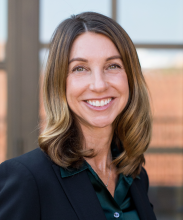
How much does it cost to live with dementia in the United States? The hidden costs are often overlooked, but these numbers and trends are important to understand in order to inform the public and effectively allocate resources. Dr. Julie Zissimopoulos leads the United States Cost of Dementia Project, where they recently published a report on the total cost of dementia in 2025. Dr. Zissimopoulos joins the podcast to discuss the report’s findings and analyze what this means for patients and families, as well as for public policy, in the future.
Guest: Julie Zissimopoulos, PhD, professor, Sol Price School of Public Policy, University of Southern California (USC), co-lead, United States Cost of Dementia Project, co-director, Aging and Cognition Research Program, USC Schaeffer Center, director, Alzheimer’s Disease and Alzheimer’s Disease Related Dementias Resource Center for Minority Aging Research (USC AD/ADRDRCMAR), Center for Advancing Sociodemographic and Economic Study of Alzheimer’s Disease and Related Dementias (CeAES-ADRD)
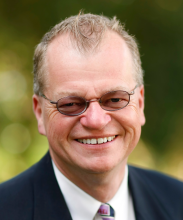
Everyone has habits. Some are beneficial for brain health while others are less so, but it turns out that habits as simple as brushing your teeth at the same time each morning can help your brain adapt to changes from cognitive impairment. Dr. Gordon Giles joins the podcast to dive into the fascinating world of neurological rehabilitation and how building small, consistent habits can rewire the brain and support healthy lifestyle choices. He also gives a sneak peek into his upcoming talk for the Healthy Living with Mild Cognitive Impairment (MCI) program titled “Unlocking the Power of Habits, Routines and Strategies.”
Guest: Gordon Giles, PhD, OTR/L FAOTA, professor emeritus, Samuel Merritt University
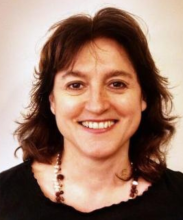
It’s estimated that 4.3 million older adults across the United States live alone with cognitive impairment. How do these individuals navigate the challenges and concerns that arise due to these memory and thinking changes, and what recommendations are there to support them as they continue living independently? Dr. Elena Portacolone joins Dementia Matters to discuss her research focused on identifying these challenges and developing equitable policies and programs for older adults living alone with cognitive impairment in the United States and worldwide.
Guest: Elena Portacolone, PhD, MBA, MPH, principal investigator, Living Alone with Cognitive Impairment Project, professor of sociology, Institute for Health & Aging, Pepper Center Scholar, Division of Geriatric Medicine, University of California San Francisco (UCSF)
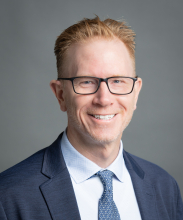
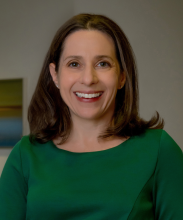
How important is one’s family history when determining Alzheimer’s risk? Returning guests Drs. Jessica Langbaum and Sterling Johnson discuss the latest research on family history and genetic risk factors and share their perspectives on the topic, specifically focusing on the role of the APOE gene as a risk factor.
Guests: Sterling Johnson, PhD, leader, Wisconsin Registry for Alzheimer’s Prevention (WRAP), associate director, Wisconsin Alzheimer’s Disease Research Center, associate director, Wisconsin Alzheimer’s Institute, lead principal investigator, ADRC Consortium for Clarity in ADRD Research Through Imaging (CLARiTI), Jean R. Finley Professor of Geriatrics and Dementia, UW School of Medicine and Public Health, and Jessica Langbaum, PhD, senior director of research strategy, Banner Alzheimer’s Institute, overseer, Observational Research Program, Clinical Trials Program, Alzheimer’s Prevention Initiative, director, Alzheimer’s Prevention Registry, director, Arizona Alzheimer’s Disease Research Center
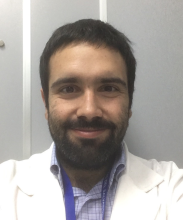
Having a relative or loved one receive a dementia diagnosis can be challenging for families, especially for families with children. How can parents, guardians and other adults explain these complex memory and thinking changes to children in a way they’ll understand? One possible way – children’s books. Dr. Tomás León joins the podcast to discuss his collection of children’s books focused on different kinds of dementia, including Alzheimer’s disease, frontotemporal dementia, Lewy body dementia and vascular dementia. He discusses his inspiration for the four stories, the writing and translation process, and the importance of helping children understand what’s happening to their loved ones, as well as shares advice on how to address these difficult conversations.
Guest: Tomás León, MD, psychiatrist, Memory and Neuropsychiatry Clinic, Hospital del Salvador, Atlantic Fellow for Equity in Brain Health, Global Brain Health Institute (GBHI)
Training the Next Generation: How the Research Education Component Supports Early Career Researchers
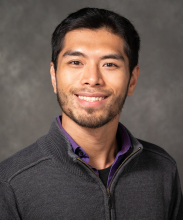

The Research Education Component (REC) focuses on educating, mentoring and training the next generation of researchers at the over 30 Alzheimer’s Disease Research Centers (ADRCs) across the United States, offering a range of fellowships, educational activities and events like the annual Alzheimer’s Disease and Related Dementias (ADRD) Research Day. In honor of this year’s ADRD Research Day, early career researchers Isa Hayde and Dr. Yang Yeh join the podcast to discuss how REC has impacted their research journeys, as well as share a preview of their lightning presentations.
Guests: Isa Hayde, undergraduate student, Clark Lab, and Yang Yeh, PhD, postdoctoral fellow, Lamming Lab
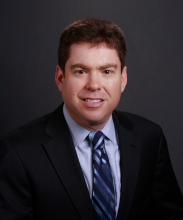
Early detection is a top priority in the field of Alzheimer’s research, and one indicator of Alzheimer’s disease is the buildup of tau in the brain. What is tau, though? How can we detect this protein, and what can it tell us about a person’s symptoms or disease progression? Dr. Gil Rabinovici, a leader in the field of brain imaging, joins Dementia Matters this week for an in-depth discussion on the role of tau PET scans in Alzheimer’s disease detection, research and clinical care.
Guest: Gil Rabinovici, MD, professor, Department of Neurology, University of California San Francisco (UCSF), director, UCSF Alzheimer’s Disease Research Center, study chair, Imaging Dementia-Evidence for Amyloid Scanning (IDEAS) and New IDEAS studies, co-principal investigator, Alzheimer’s Network for Treatment and Diagnostics (ALZ-NET), Longitudinal Evaluation of Alzheimer’s Disease Study (LEADS)
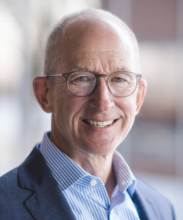
Receiving a diagnosis of Alzheimer’s disease or a related dementia can be a complicated experience. While some experience relief at being able to put a name to their concerns, many worry about telling loved ones or being treated differently due to the stigma surrounding the word “dementia.” Mike Zuendel joins the podcast to share his experience of being diagnosed with Mild Cognitive Impairment (MCI) due to Alzheimer’s disease and how he’s pushing back against the stigma surrounding dementia. He also talks about how early detection and treatment have allowed him to lead a normal life with cognitive impairment.
Guest: Mike Zuendel, member, board of directors, Banner Alzheimer’s Institute Foundation, member, Alzheimer’s Patient Advisory Board, Center for Information and Study on Clinical Research Participation, founder, Initiative to Change the D-Word, founder, CEO, Legacy Bridge Private Family Offices
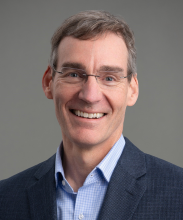
Holistic medicine, alternative medicine, complementary medicine – you may have heard these terms or seen them used online and wondered what they mean. Each term refers to the concept of integrative medicine, a comprehensive approach to healthcare that focuses on treating a person’s mind, body and spirit rather than addressing symptoms or a specific disease through a combination of medical treatments and other evidence-based therapies. By integrating practices like nutrition, mindfulness, supplements and other alternative therapies with traditional care, integrative medicine aims to promote overall wellness, enhance healing and improve quality of life, especially for individuals managing chronic conditions like dementia. Dr. David Rakel, a leader in integrative medicine, joins the podcast to share about how this holistic approach can help people experiencing memory change and how diet, mindset and lifestyle can play a crucial role in supporting brain health.
Guest: David Rakel, MD, professor, chair, University of Wisconsin Department of Family Medicine and Community Health, founder, University of Wisconsin Osher Center for Integrative Health
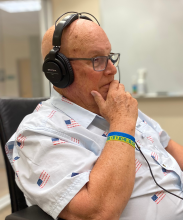
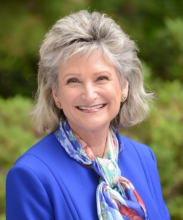
Caring for a loved one with Alzheimer’s disease or a related dementia can be challenging, with no two journeys being the same. Who better to turn to for caregiving support, tips and advice, then, than other caregivers who have been on similar paths? Steve O’Leary and Virginia Naeve join Dementia Matters to share their different experiences caring for their partner and parent respectively, their goal to help other caregivers on their journeys through their podcast Spotlight on Care and more.
Guests: Steve O’Leary, co-host, Spotlight on Care, member, leadership council, University of California, Irvine Institute for Memory Impairments and Neurological Disorders (UCI MIND), and Virginia Naeve, co-host, Spotlight on Care, volunteer, UCI MIND




